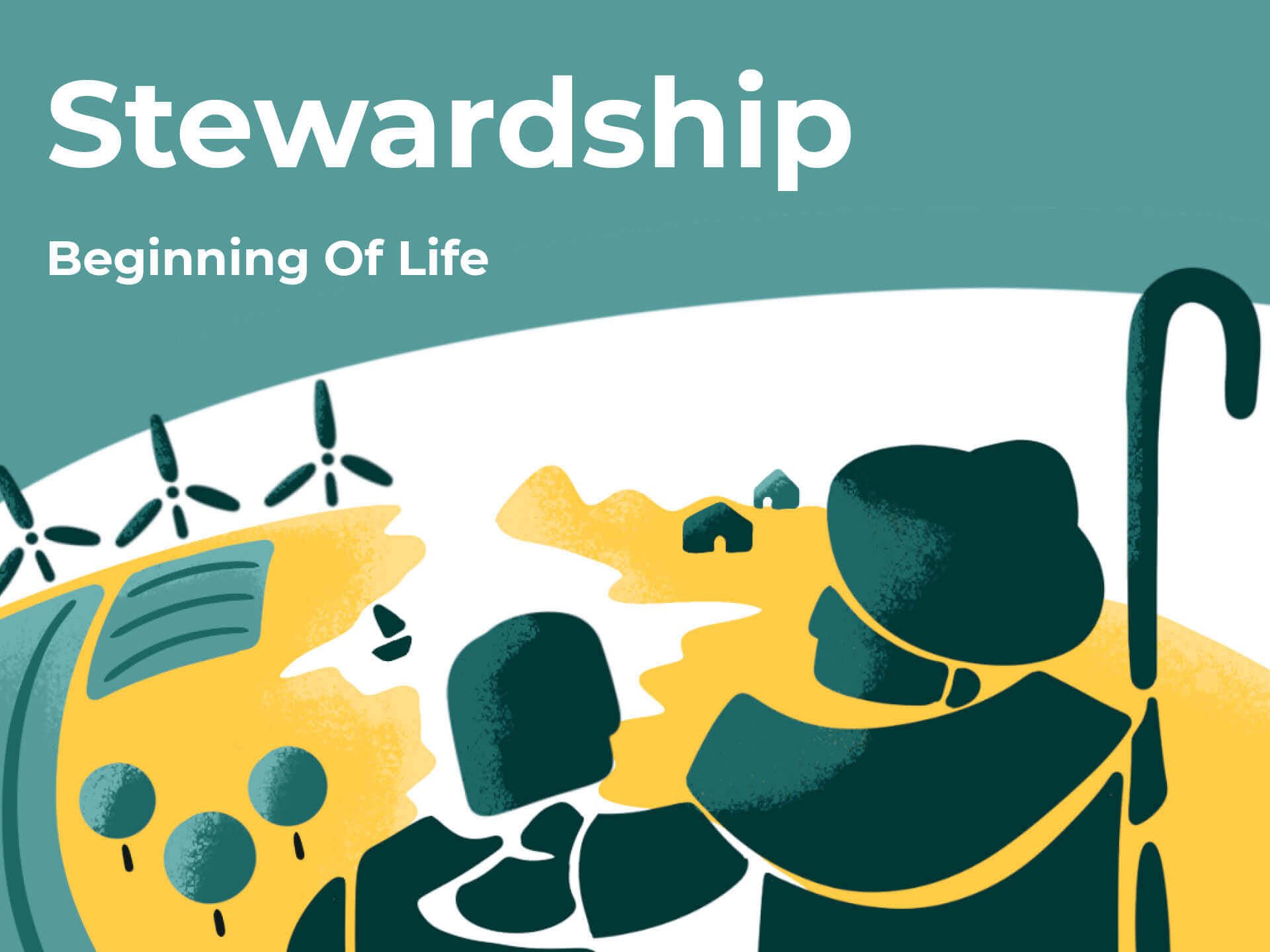Beginning of Life
About this series
This 11-part series will help us to understand and apply the Bible’s teaching on God’s plan for us to steward the gifts he has given us and therefore the type of people he is calling us to be in our day.
The entire message of the Bible reflects the statement in Psalm 24:1, “The earth is the Lord’s, and everything in it, the world, and all who live in it” (cf. Psalm 89:11). And yet we must balance that with the fact that God has also called mankind to steward his creation: “The highest heavens belong to the Lord, but the earth he has given to the human race” (Psalm 115:16) In making the distinction between God’s rule and our delegated rule, John Stott says, ‘Our possession of the earth is leasehold, therefore, not freehold. We are only tenants; God himself remains...the “landlord.”’
It’s also clear from the creation account in Genesis that mankind was specifically created to bear God’s image and to rule on his behalf over his creation:
Genesis 1:28: “God blessed them and said to them, ‘Be fruitful and increase in number; fill the earth and subdue it. Rule over the fish in the sea and the birds in the sky and over every living creature that moves on the ground.’”
William Edgar defines this mandate given to Adam: ‘The creation mandate is the on-going charge to humanity, in the power and blessing of God, to be fruitful, multiply, and fill the earth and to gently subdue and cultivate the earth.’ This mandate relates not only to the physical ‘earth’ but also to our physical selves, what we do with the resources God has given us and to the way we care for the rest of mankind.
About this talk
Scripture: Psalm 139:13-18
American writer Pearl Buck: ‘Our society must make it right and possible for old people not to fear the young or be deserted by them, for the test of a civilization is the way that it cares for its helpless members.’ Hubert Humphrey, U.S. Vice President from 1965 to 1969, spoke about the treatment of the weakest members of society as a reflection of its government: ‘The moral test of government is how that government treats those who are in the dawn of life, the children; those who are in the twilight of life, the elderly; those who are in the shadows of life; the sick, the needy and the handicapped.’
Theology, of course, informs how we view the whole of life, including, crucially, the beginning and the end points. The Bible speaks about human beings as people before birth on many occasions, for example: Psalm 139:13-16; Luke 1:39-45; Jeremiah 1:5; Psalm 51:5-6; Galatians 1:15. This has huge implications for our belief about the unborn. In addressing this, we need to be hugely sensitive towards those for whom that is a sensitive subject - those who knew they were not wanted by their parents or who have experienced miscarriage or had an abortion.
The fact that we are all equally made in God’s image means we are all equally valuable: ‘People are equal in the same way pennies are equal. Some are bright, others are dull; some are worn smooth, others are sharp and fresh. But all are equal in value for each for each penny bears the image of the sovereign; each person bears the image of the King of kings’ (Vaughan Roberts). This has great meaning for our beliefs:
About the inherent value of every single human being.
That it can never be said of someone that they are a ‘mistake.’
That as Christians we have a responsibility to speak up for, and care for, those who cannot speak up for themselves.
About those born with special needs, along with the truths of Psalm 139:13-16. Again, great sensitivity will be needed here.
We look at:
How do attitudes to the beginning of life differ across times and cultures?
What does Psalm 139:13-16 have to say, in practical terms to our attitudes to the beginning of life?
Are there some practical steps we can encourage people to take to stand up for those at the beginning of life and those affected by issues they’ve encountered regarding the beginning of life?











God gives us reasons for working, without making it the reason. Work, then, becomes an avenue for using the creative opportunities God has given, to serve other people and to love him - all of which we do for his glory.